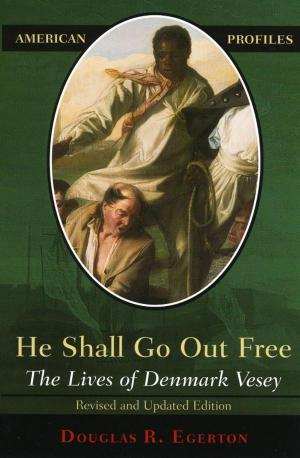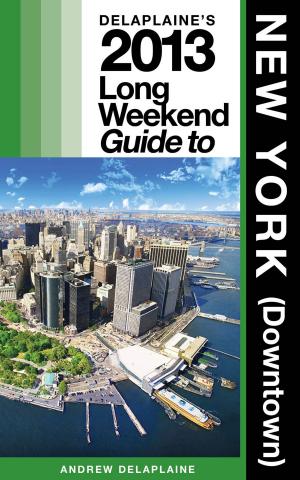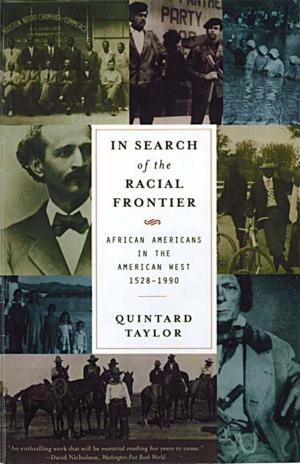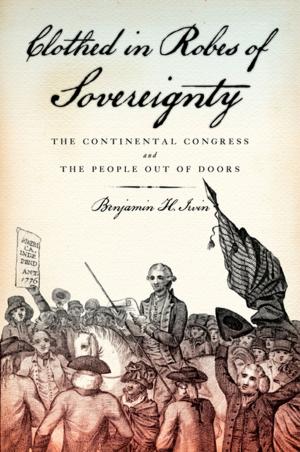Pamphlets On The Constitution Of The United States
Nonfiction, History, Reference, Reference & Language, Americas, United States| Author: | Various, Paul Leicester Ford | ISBN: | 1230000274689 |
| Publisher: | BROOKLYN, N. Y | Publication: | October 17, 2014 |
| Imprint: | Language: | English |
| Author: | Various, Paul Leicester Ford |
| ISBN: | 1230000274689 |
| Publisher: | BROOKLYN, N. Y |
| Publication: | October 17, 2014 |
| Imprint: | |
| Language: | English |
Example in this ebook
The English speaking people have been a race of pamphleteers. Whenever a question—religious, political, military or personal—has interested the general public, it has occasioned a war of pamphlets, which, however partisan and transitory, were in a manner photographs of the public opinion, and as such have been used and valued by students and publicists.
The rarity and consequent difficulty of reaching this class of literature has been, however, a great obstacle to its use as sources of history. The name of pamphlet tells the purpose of these little publications. Written hurriedly, to effect a purpose for which there is not enough time or matter for a more elaborate volume, they are thrown by after a brief circulation and before a decade has passed, the edition has disappeared, and if any are still in existence, they are only to be found in the few public and private libraries which have taken the trouble to secure these fugitive leaflets.
The recognized value of these tractates in England has led to very extensive republications; and the Harleian Miscellany, the Somers Tracts, the issues of the Roxburghe, Bannatyne, Maitland, Chetham, Camden and Percy societies and the reprints of Halliwell, Collier, and M’Culloch, not to mention many minor collections, have placed several thousand of them within the reach of every one. But in America few attempts have been made to collect this kind of literature—Peter Force reprinted a series of pamphlets on the early settlement of the United States and a work of similar scope on Canada, containing reprints of the so called “Jesuit Relations” was printed under the patronage of the Canadian government. John Wingate Thornton and Frank Moore have collected a number of the patriotic sermons preached before and during the Revolutionary war. Franklin B. Hough republished a series of the funeral sermons and eulogies on the death of Washington, and James Spear Loring did the same for the orations delivered in Boston from 1770 to 1852. Samuel G. Drake reprinted a collection of tracts relating to King Philip’s war, Joseph Sabin issued a series relating to the propagation of the gospel among the New England Indians, and William H. Whitmore edited, for the Prince Society, a number relating to the governorship of Sir Edmund Andros—but these are the only attempts worth mentioning to systematically gather these leaflets of our history, and which have singularly neglected those bearing on politics and government, in which we have so largely originated the true theories and methods.
When the student or historian comes to examine the earlier pamphlet literature of our country he encounters the greatest difficulty in their use. The lack of communication between the colonies or states, with its consequent localization of the pamphlet; the small edition caused by the high price of paper, which at that time was the costly element in the production of books; the little value attached by each generation to the pamphlets of its own time; the subsequent wars, with the destruction and high price of old paper that came with them, and the general disregard of historical material that existed for many years after the stirring times that occasioned these arguments, have all tended to make these tracts almost impossible to consult; and any one desiring to examine the original editions of the thirteen pamphlets contained in this volume would be compelled to visit the public libraries in the cities of Washington, Philadelphia, New York, Albany and Boston, while it would take a life time of patient searching and waiting to collect them from the second-hand booksellers and auction-rooms, at prices that few would care to pay.
To be continue in this ebook...............................................................................................................
Example in this ebook
The English speaking people have been a race of pamphleteers. Whenever a question—religious, political, military or personal—has interested the general public, it has occasioned a war of pamphlets, which, however partisan and transitory, were in a manner photographs of the public opinion, and as such have been used and valued by students and publicists.
The rarity and consequent difficulty of reaching this class of literature has been, however, a great obstacle to its use as sources of history. The name of pamphlet tells the purpose of these little publications. Written hurriedly, to effect a purpose for which there is not enough time or matter for a more elaborate volume, they are thrown by after a brief circulation and before a decade has passed, the edition has disappeared, and if any are still in existence, they are only to be found in the few public and private libraries which have taken the trouble to secure these fugitive leaflets.
The recognized value of these tractates in England has led to very extensive republications; and the Harleian Miscellany, the Somers Tracts, the issues of the Roxburghe, Bannatyne, Maitland, Chetham, Camden and Percy societies and the reprints of Halliwell, Collier, and M’Culloch, not to mention many minor collections, have placed several thousand of them within the reach of every one. But in America few attempts have been made to collect this kind of literature—Peter Force reprinted a series of pamphlets on the early settlement of the United States and a work of similar scope on Canada, containing reprints of the so called “Jesuit Relations” was printed under the patronage of the Canadian government. John Wingate Thornton and Frank Moore have collected a number of the patriotic sermons preached before and during the Revolutionary war. Franklin B. Hough republished a series of the funeral sermons and eulogies on the death of Washington, and James Spear Loring did the same for the orations delivered in Boston from 1770 to 1852. Samuel G. Drake reprinted a collection of tracts relating to King Philip’s war, Joseph Sabin issued a series relating to the propagation of the gospel among the New England Indians, and William H. Whitmore edited, for the Prince Society, a number relating to the governorship of Sir Edmund Andros—but these are the only attempts worth mentioning to systematically gather these leaflets of our history, and which have singularly neglected those bearing on politics and government, in which we have so largely originated the true theories and methods.
When the student or historian comes to examine the earlier pamphlet literature of our country he encounters the greatest difficulty in their use. The lack of communication between the colonies or states, with its consequent localization of the pamphlet; the small edition caused by the high price of paper, which at that time was the costly element in the production of books; the little value attached by each generation to the pamphlets of its own time; the subsequent wars, with the destruction and high price of old paper that came with them, and the general disregard of historical material that existed for many years after the stirring times that occasioned these arguments, have all tended to make these tracts almost impossible to consult; and any one desiring to examine the original editions of the thirteen pamphlets contained in this volume would be compelled to visit the public libraries in the cities of Washington, Philadelphia, New York, Albany and Boston, while it would take a life time of patient searching and waiting to collect them from the second-hand booksellers and auction-rooms, at prices that few would care to pay.
To be continue in this ebook...............................................................................................................















